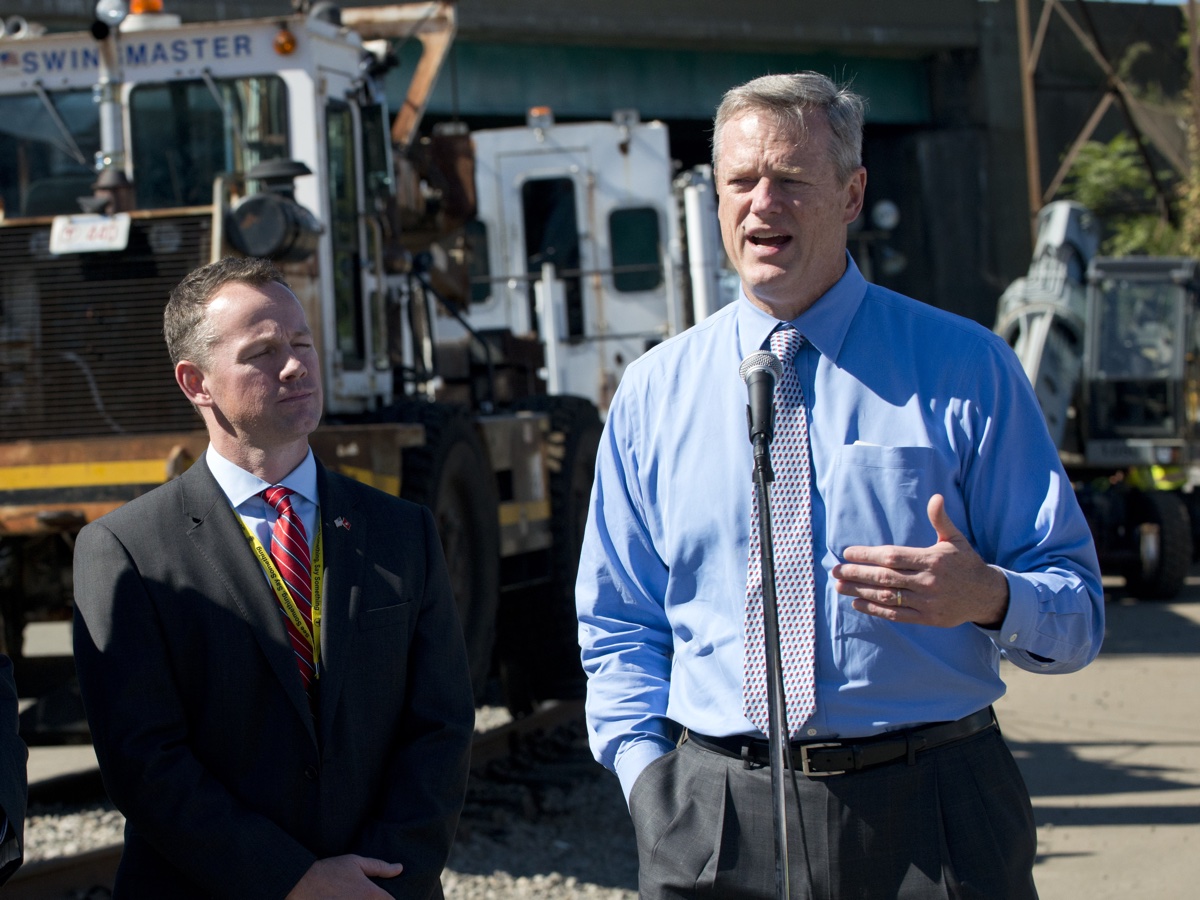Contrary to What the MBTA Has Told You, Absenteeism Isn’t in Sharp Decline

Photo by Joanne DeCaro/Governor’s Office
MBTA acting general manager Brian Shortsleeve has spent much of the last year touting the success of recent reforms to curb the rampant absenteeism plaguing the T.
In April, Shortsleeve said absenteeism was “down sharply” as a result of the newly enacted leave policy. Two months later, he maintained that absenteeism was trending downward, “resulting in fewer dropped trips and creating an atmosphere where good attendance is valued.” And by October, Shortsleeve felt there was a “positive trend that indicates the policy is working.”
However, newly released information shows the progress has been, at best, negligible.
Data obtained by Commonwealth magazine’s Steve Koczela via public records request shows the rate of unscheduled absences at 7.8 percent through the first nine months of 2016. When stacked against 2015, when the snowiest winter in Boston history crippled the transportation system, this shows reductions around 28-33 percent, which T leadership has heralded as a major improvement.
But when compared to drastically less snowbound fiscal years 2013 and 2014—when the rates of unscheduled absences were 7.8 and 8.6 percent, respectfully—there appears have been very modest progress made, if any at all. Unscheduled absences among transportation operators, an oft-cited subset, showed no improvement between 2016 and past fiscal years.
The MBTA only released this absenteeism data after Koczela and other journalists grappled with the agency for nearly a year. A spokesperson for the T blamed this delay on the agency having just one data analyst split between HR projects and fulfilling public records requests, and explained that the recent hiring of two addition data analysts would help avoid future logjams.
You can check out Koczela’s full report here.


